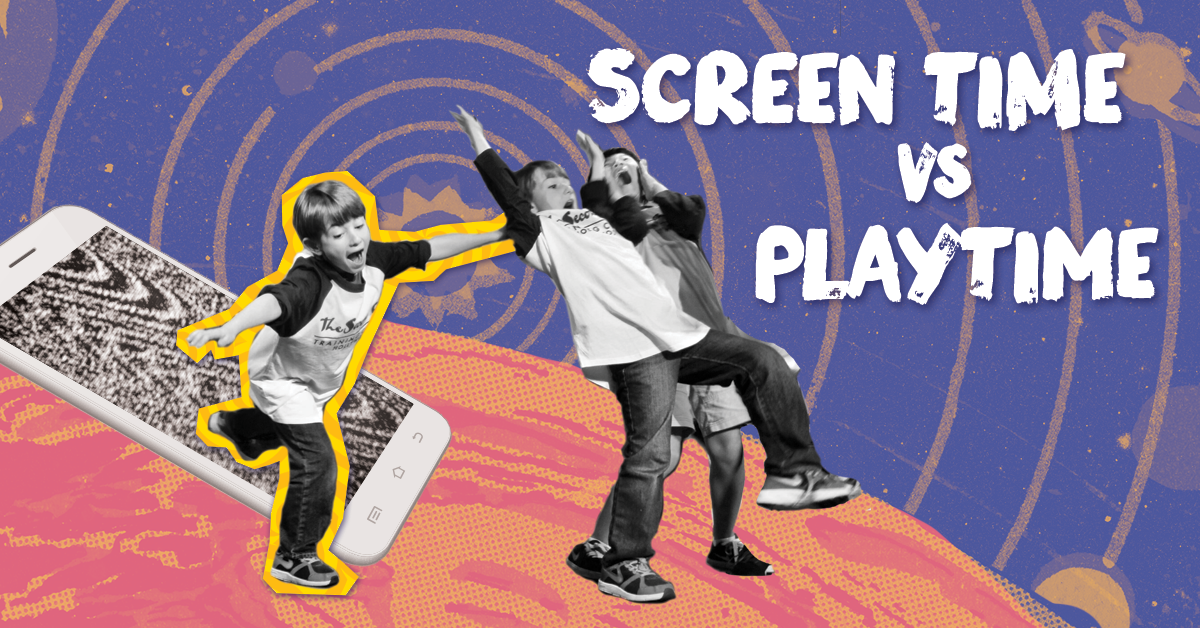So much has been written discussed, debated, and dissected about kids and screen time. How much is too much? Which content is the right content? How can I get my kid to win three million dollars playing Fortnight, too? Here’s the thing: whether you’re for or against screen time in any amount, all parents are seeking ways to make the most of kids’ (and tweens’ and teens’) offline, device-free time.
YES, improv combats all the issues that arise with screen time, AND it can bolster all the good stuff you want your kids to have more of.
Problem-Solving & Attention Span Bootcamp
Improvisation, at its core, isn’t about showing off or stealing the scene to get a laugh. It’s about being in the moment and responding in real-time. It’s about making connections and choices and getting the scene to move forward as an ensemble…and you can’t do that if you’re distracted, even for a moment. An improv class allows kids to focus on one thing, even if it’s just for an hour. By learning to say “yes, and,” kids get in the habit of building on ideas and telling a story from start to finish, rather than GIF to Regram.
Plus, improv brings with it a lot of practiced failure--and that’s not a bad thing. The ability to learn to fail upwards at an early age will only encourage young people to believe in themselves and be unafraid to push boundaries (except curfew) in life.
Communication & Language Skills
You can’t respond to a scene partner with an emoji. You can be a walking, talking pizza emoji who has feelings and reactions in a made-up world with a tap-dancing whale. Improv requires the practice of co-creation to make something great, and that means kids have to not only talk to each other, but listen to each other, too. Kids learn how to stay in the moment and decipher the all-important difference between listening just respond (“yes, Mom;” “no, Mom”) and listening to understand. (“Mom, sounds like your day of driving us around to soccer and gymnastics and taking the dog to the vet while also putting in eight billable hours working from home was really tough on you. Want a foot rub?”)
Social Interaction IRL
This might be the best side effect of all. Many parents these days are terrified of their kids growing up online, isolated and unable to connect with other humans via any other interaction than group texts. Above all else, improv is founded on the principle of ensemble--reconciling the needs of individuals with those of the broader team. Another key phrase in our world is “follow the follower,” which means any member of the group will have a chance to take a leadership role. Even if your child isn’t the class clown or a social butterfly, improv only works when it’s a give-and-take between all. The quieter voices are just as important to the group.
Screens aren’t going away, but improv can be a safe, fun opportunity to spend structured downtime in an environment that builds confidence, builds relationships, and won’t cause the growth of horns on little growing skulls.

 Shows & Tickets
Shows & Tickets  Chicago Venue Info
Chicago Venue Info  Classes & Education
Classes & Education  Second City Works
Second City Works  Second City Network
Second City Network  Our Legacy
Our Legacy 













